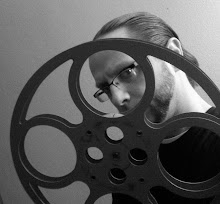The stages of grief; denial, anger, bargaining, depression,
and acceptance…are the series of emotions people experience after losing a
loved one. These stages can last days, months, or years at a time, and perhaps
the one that is the most emotionally charged is anger. This is the basis for director Martin McDonagh’s black
comedy drama THREE BILLBOARDS OUTSIDE EBBING, MISSOURI.
Seven months after the brutal rape, murder, and burning of
her of daughter, Midred (Frances McDormand), is infuriated with the lack of arrests
and erects three billboards outside her small town shaming Sheriff Willoughby
(Woody Harrelson). The billboards spark rage from the community, including
officer Dixon (Sam Rockwell), her ex-husband (John
Hawkes), and also affects her depressed teenage son Robbie (Lucas Hedges).
Emotional rage is the name-of-the-game in THREE BILLBOARDS.
Midred has entered the rage stage and doesn’t seem to be letting go of it
anytime soon. Although she gets some support from friends, her decision to
start a very public war with the police has immediate ripple effects. Dixon,
who is an unstable alcoholic prone to violence, lashes out in the only way he
knows how, and poor Sheriff Willoughby has his own health problems and is
effected by the shaming in more ways than one.
McDonagh does great work in the early goings of the film to
establish his characters; Mildred is angry, Willoughby is inept, and Dixon is
an asshole, but as the narrative moves forward things change. Mildred is
portrayed as angry to the point of being unlikeable, Willoughby and his health
issues, along with his loving family, are brought up front, and even Dixon
manages to show his true worth. The audience’s allegiances will change often in
THREE BILLBOARDS, and the magic of the film is that it’s hard to figure out who
is in the right, and who, if any of them, are in the wrong.
The story has plenty of twists and turns to keep the mystery
of the murder under cover, and also in the background as McDonagh spends his
time in THREE BILLBOARDS with the characters circling each other, seeing who
blinks first. There is a ton of emotional hurt going on, and it’s a fascinating
watch to see where it’s going. Pacing is brisk, the dialogue is sharp and
funny, and the score by Carter Burwell gives an atmosphere that nearly makes
the film feel like an Old West yarn. The film looks gorgeous, although a
peaceful scene with Mildred and a fawn is ruined by shitty, cartoonish CGI.
Acting is top-notch. Frances McDormand mostly shows a gruff
exterior, but we get hints of just how torn up she is inside. Woody Harrelson
has a lot of heavy lifting to do, and the show is stolen by Sam Rockwell who
goes from contender of the Asshole of the Year Award to Hero in a blink. The
rest of the cast is excellent, including Lucas Hedges, John Hawkes, Abbie
Cornish, Clarke Peters, and Peter Dinklage.
By movie’s end, not all of the characters come out of the
situation unscathed, and the ones who do aren’t quite in the clear, but at the
very least they armed with tools to get through the next stage of grief they
are likely to go through. There a few moments towards the end where it seems
like McDonagh was running out of things for his characters to do, and they wind
up doing some head-scratching moves, but it’s a minor head-scratcher in what is
a superb film. This is an emotional gut-punch boosted by outstanding
performances and guided by a steady hand. These billboards stand tall.
BOTTOM LINE: See it


No comments:
Post a Comment
A few rules:
1. Personal attacks not tolerated.
2. Haters welcome, if you can justify it.
3. Swearing is goddamn OK.